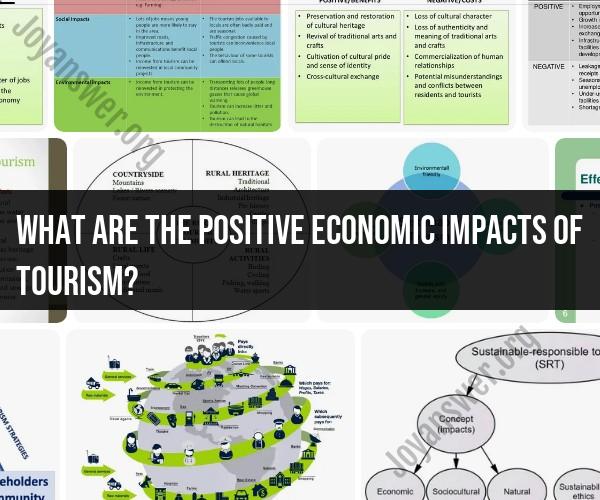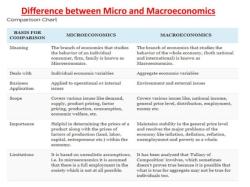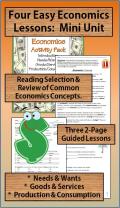What are the positive economic impacts of tourism?
Tourism can have several positive economic impacts on a destination, making it an essential contributor to the economy of many regions and countries. Some of the key economic benefits of tourism include:
Job Creation: Tourism is labor-intensive, and it creates jobs in various sectors, such as hotels, restaurants, transportation, and tour guides. This is particularly important in areas with high unemployment rates.
Income Generation: Tourism provides income for individuals and businesses in the hospitality and service industries. It can boost the earning potential of local communities and support small businesses.
Economic Diversification: Tourism can help diversify the economy by reducing reliance on a single industry. It encourages the development of various sectors, such as hospitality, entertainment, and cultural attractions.
Foreign Exchange Earnings: International tourists spend money in the local economy, contributing to foreign exchange earnings. This can help stabilize a nation's economy and support trade balances.
Infrastructure Development: To support tourism, governments often invest in infrastructure, including airports, roads, and public transportation. These improvements benefit both tourists and residents.
Small Business Growth: Tourism provides opportunities for small businesses, such as family-owned hotels, restaurants, and tour operators, to thrive and contribute to the local economy.
Cultural Preservation: Tourism can encourage the preservation and celebration of a country's cultural heritage and natural attractions. This not only contributes to identity but also attracts tourists.
Increased Investment: The tourism industry often attracts foreign investment in hotels, resorts, and other infrastructure, which can boost economic development.
Tax Revenue: Governments collect taxes, such as sales tax and hotel occupancy tax, from tourist-related businesses, contributing to public revenue.
Multiplier Effect: Tourism has a multiplier effect, meaning the economic impact goes beyond the initial spending by tourists. As local businesses and employees spend their earnings, this circulates money throughout the economy.
Destination Promotion: The income generated from tourism can be reinvested in promoting the destination and improving its attractiveness, creating a positive feedback loop.
Sustainable Economic Growth: When managed sustainably, tourism can contribute to long-term economic growth by protecting the environment and local cultures.
It's important to note that the impact of tourism can also have negative aspects, including environmental degradation, over-tourism, and cultural commodification. Sustainable and responsible tourism practices are crucial to mitigate these negative effects and ensure that the benefits of tourism are shared broadly and endure over time.
Tourism's economic impact can vary significantly from one country to another and within different regions of a country. Successful tourism strategies involve careful planning, infrastructure development, marketing, and consideration of the environmental and social impacts to maximize the benefits while minimizing the downsides.
Positive Economic Impacts of Tourism: A Comprehensive View
Tourism is one of the world's largest and fastest-growing industries, and it has a significant impact on the economies of many countries. In addition to its direct economic benefits, tourism can also have a number of positive indirect impacts, such as stimulating local businesses and employment, preserving culture and the environment, promoting investment and infrastructure development, and acting as a catalyst for economic diversification.
How Tourism Stimulates Local Businesses and Employment
Tourism drives demand for a wide range of goods and services, including accommodation, food, transportation, activities, and souvenirs. This demand supports local businesses and creates jobs in a variety of sectors. For example, in a beach resort town, tourism may create jobs in hotels, restaurants, bars, tour operators, gift shops, and transportation companies.
Tourism can also have a positive impact on employment levels in the construction sector, as new hotels, restaurants, and other tourism-related infrastructure are built to meet the needs of visitors. Additionally, tourism can create indirect jobs in sectors that support the tourism industry, such as agriculture, manufacturing, and finance.
Cultural and Environmental Preservation Through Tourism
Tourism can play an important role in cultural and environmental preservation. When visitors learn about and appreciate the culture and environment of a place, they are more likely to support efforts to protect it. For example, tourism revenues can be used to fund the restoration of historical sites, the development of cultural attractions, and the conservation of natural areas.
Tourism can also help to raise awareness of environmental issues and promote sustainable practices. For example, many tourists are now looking for ways to reduce their environmental impact when traveling. This demand can encourage tourism businesses to adopt sustainable practices, such as using renewable energy, reducing waste, and supporting local communities.
Promoting Investment and Infrastructure Development
Tourism can also promote investment and infrastructure development. Governments and businesses are more likely to invest in a destination if they know that it is attractive to tourists. This investment can lead to the development of new infrastructure, such as roads, airports, and hotels.
Improved infrastructure can also benefit local residents, not just tourists. For example, a new road that is built to improve access to a tourist destination may also make it easier for local residents to get to and from work or school.
Tourism as a Catalyst for Economic Diversification
Tourism can also act as a catalyst for economic diversification. In countries that are heavily reliant on a single sector, such as oil or agriculture, tourism can provide a new source of income and create jobs in new sectors. This can help to make the economy more resilient to economic shocks.
For example, in a country that is heavily reliant on oil exports, tourism can provide a new source of income if the price of oil falls. Additionally, tourism can create jobs in new sectors, such as hospitality and tourism management.
Conclusion
Tourism can have a number of positive economic impacts, including stimulating local businesses and employment, preserving culture and the environment, promoting investment and infrastructure development, and acting as a catalyst for economic diversification.
However, it is important to note that tourism can also have some negative impacts, such as overcrowding, pollution, and cultural erosion. It is important to manage tourism sustainably to minimize these negative impacts and maximize the positive benefits of tourism.













